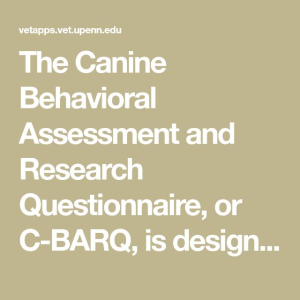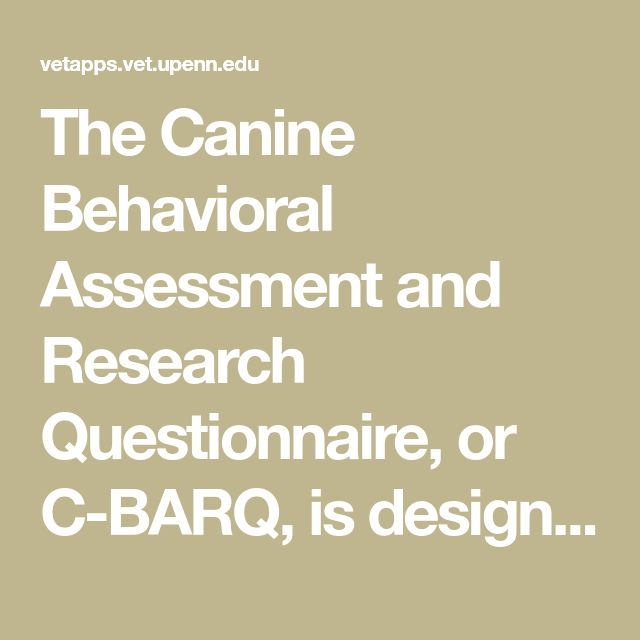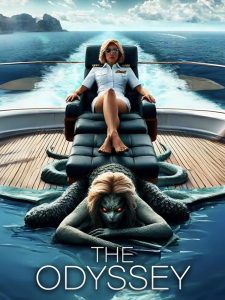Sci-fi books have captivated readers for generations, inviting us to explore the vast possibilities of our universe while challenging the very nature of humanity. These engaging science fiction novels often delve into themes like artificial intelligence, offering a reflection on our relationship with technology and its potential implications for society. Faculty and staff at Harvard have shared their recommended sci-fi books that illuminate these pressing subjects, encouraging readers to confront the future with both curiosity and caution. Whether it’s through cautionary tales about censorship or explorations of what it means to be human in an increasingly automated world, sci-fi literature plays a crucial role in shaping our understanding of contemporary issues. As we navigate a rapidly evolving landscape, the insights drawn from these stories can provide valuable perspectives on our collective journey into the unknown.
Science fiction literature, often termed speculative fiction, invites readers to embark on imaginative journeys that stretch the boundaries of reality. This genre encompasses a diverse array of narratives that explore existential questions about life and intelligence, bridging the gap between human experience and futuristic possibilities. Recommended titles in this realm not only entertain but also provoke critical thought regarding pressing societal challenges, such as the influence of technology on our lives. From cautionary tales about surveillance and censorship to hopeful visions of interstellar exploration, these books about humanity offer a rich tapestry of insights and reflections on our place in the cosmos. As we probe deeper into themes like AI in literature, the dialogues sparked by these stories encourage us to contemplate the implications of our choices for future generations.
The Importance of Sci-Fi Literature in Exploring Humanity
Science fiction literature has long served as a mirror reflecting the complexities of human existence and societal challenges. Authors skillfully weave narratives that delve into the moral dilemmas and ethical repercussions of technological advancement, especially in an age that sees rapid development in fields like artificial intelligence. Books such as “Blindsight” by Peter Watts and “Fahrenheit 451” by Ray Bradbury underscore the notion that humanity is continually at a crossroads between progress and potential peril. These narratives not only entertain readers but also provoke critical discussions about the essence of humanity in a technologically dominated landscape.
Moreover, sci-fi novels often engage with themes of identity and consciousness, prompting readers to reconsider what it means to be human. Works such as Stanislaw Lem’s “Solaris” challenge the boundaries of human understanding, suggesting that intelligence can manifest in forms beyond our comprehension. This exploration encourages introspection among readers, making them question their own experiences and connections in a rapidly evolving world. In essence, sci-fi literature cultivates a space for reflection on humanity’s role amidst technological innovation.
Recommended Sci-Fi Books That Challenge Perceptions
Diving into recommended sci-fi books can transport readers to worlds where the possibilities of technology and society are examined in dramatic and thought-provoking ways. Titles like “A Rover’s Story” by Jasmine Warga invoke questions about emotional connections between humans and technology, illustrating the potential for AI to influence the human experience in profound ways. Similar discussion points arise in works that engage with the complexities surrounding artificial intelligence, allowing readers to reflect on their own relationships with technology in a contemporary context.
Furthermore, the recommended sci-fi books often address the broader themes of censorship and control, as highlighted in Bradbury’s “Fahrenheit 451”. These narratives serve as cautionary tales, reminding us of the fragile nature of knowledge and the importance of intellectual freedom. They encourage readers to remain vigilant against forces that seek to suppress critical thought, especially in an era where information is increasingly curbed by technological systems. This collection of recommended literature not only entertains but also serves as a catalyst for discussion about our future as a society.
AI in Literature: A Double-Edged Sword
The representation of artificial intelligence in literature has sparked invaluable conversations about its implications for society. Many authors, such as Karen Brennan in her recommendation of “Blindsight,” challenge traditional views on consciousness and capability. They present AI as entities that not only lack self-awareness but may also surpass human potential. This perspective pushes readers to reconsider where humanity stands in a rapidly advancing technological world, questioning the values we place on intelligence and consciousness.
Conversely, AI’s portrayal in literature can also serve to highlight the ethical dilemmas arising from our reliance on technology. Schrödinger’s cat of potential outcomes unravels as narratives explore both the benefits and risks of integrating AI into our lives. For instance, when examining works like “Exorcism” by Han Song, readers are confronted with the distressing consequences of unregulated AI. This duality in storytelling cultivates a deeper understanding of AI, imploring readers to engage thoughtfully with technological advancements in their own world.
Censorship and Its Reflection in Sci-Fi Narratives
Censorship is a prevalent theme in many sci-fi narratives that provide compelling reflections on freedom of thought and expression. Bradbury’s “Fahrenheit 451” chillingly portrays a society where books are banned and critical thinking is eradicated, emphasizing the power dynamics at play in controlling information. This serves as a powerful metaphor for the tactics employed by governments and institutions that stifle dissent and creativity. Through its dystopian lens, sci-fi literature allows readers to confront the often-overlooked implications of censorship in their lives.
The exploration of censorship in science fiction extends beyond its political implications; it also resonates on a personal level. Characters in these stories often experience a profound sense of loss through the absence of literature and alternative ideas. By drawing parallels to real-world scenarios of information control, these narratives elucidate the importance of safeguarding intellectual freedom. Consequently, engaging with these recommended sci-fi books impels readers to reflect on their responsibilities regarding access to diverse perspectives and the value of maintaining a culture of open discourse.
Exploring the Human Condition Through Sci-Fi Households
Sci-fi literature often offers a lens through which readers can examine the human condition within the structures of family and society. In works like “A Rover’s Story,” the interactions between human characters and artificial entities unveil poignant themes of connection and emotional depth. The narrative compels readers to reevaluate how relationships evolve in a technologically advanced world, urging them to explore what it means to nurture these bonds amidst growing societal distances and distractions.
Furthermore, these stories reveal the impact of technology on familial dynamics, as seen in the relationship between Rania and Res from “A Rover’s Story.” As Rania navigates the demands of her professional life, her efforts to connect with a machine symbolize humanity’s desire for companionship and understanding, even in the face of growing isolation. Sci-fi literature artfully reflects the complexities of the human experience and fosters critical discussions that are increasingly relevant in an age defined by technology.
The Evolution of Sci-Fi: From Dystopia to Utopia
The evolution of science fiction literature has seen a dynamic shift from heavy-handed dystopias to thoughtful explorations of potential utopian futures. Classic works such as “Fahrenheit 451” serve as warnings about oppressive regimes while more contemporary narratives hint at the possibility of rebuilding and reimagining society. As we analyze various recommended sci-fi books, we see that authors are not only critiquing the current trajectory of humanity but also offering blueprints for what a more equitable future might look like.
This shift into more positive portrayals allows readers an opportunity to engage with the themes of hope and resilience within the genre. Works like “A Rover’s Story” evoke optimism through the lens of innovation, demonstrating how technology can enhance rather than hinder human connection. Exploring these blends of dystopian caution and utopian inspiration, sci-fi literature ultimately encourages readers to envision and strive for a better future where technology serves humanity in meaningful ways.
Cultural Reflections Through Science Fiction Novels
Science fiction novels frequently hold up a cultural mirror, reflecting societal anxieties and aspirations through imaginative storytelling. Titles like “Solaris” explore the depths of human emotions and the struggles of understanding both ourselves and each other against the backdrop of alien encounters. This cultural examination is particularly significant as it invites readers to engage with philosophical questions about existence, consciousness, and the unknown.
Moreover, science fiction serves as a canvas for authors to comment on current events, shaping narratives that resonate with contemporary issues. Han Song’s “Exorcism” reveals the intersection of art and politics, exploring themes of censorship and societal decay within a sci-fi framework. Such reflections facilitate discussions around cultural memory and the consequences of ignoring historical lessons, driving readers to examine their own reality and the narratives they choose to embrace.
The Role of Character Development in Sci-Fi Literature
In the realm of sci-fi literature, character development plays a pivotal role in conveying complex themes and ideas. Characters often serve as a conduit through which readers can explore the intricacies of technological advancement, particularly as they grapple with the repercussions of AI and its implications on their lives. In “Blindsight,” the journey of the augmented crew prompts inquiries into the nature of consciousness and invites readers to experience their emotional struggles as identifiable human experiences in a world of the unknown.
Conversely, novels like “A Rover’s Story” humanize technology by developing characters who resonate with emotional intelligence. Through the relationships formed between humans and AI, these narratives foster empathy and clarity, ultimately challenging readers to contemplate the etiology of connection in a world increasingly reliant on mechanization. Engaging with these character-driven stories elevates the reading experience and reinforces the layered dialogues taking place within sci-fi literature.
The Impact of Technology on Storytelling in Sci-Fi
Technology plays a significant role in shaping the storytelling landscape within science fiction literature. As advancements in real-world technology transcend our imaginations, authors dynamically incorporate these elements into their narratives. The depiction of AI in novels such as Ray Bradbury’s “Fahrenheit 451” not only serves as a plot device but also becomes a character in its own right, interrogating the ramifications of technology on society and human interactions.
In this landscape, the evolution of storytelling techniques is also influenced by technology, as seen in the rise of digital literature and multimedia narratives. The integration of AI and digital platforms allows for more experimental forms of storytelling, facilitating interactive experiences that engage readers in unusual ways. Thus, the intersection of technology and narrative continues to expand, pushing the boundaries of what storytelling can achieve in the realms of sci-fi literature.
Frequently Asked Questions
What are some recommended sci-fi books that explore AI in literature?
One highly recommended sci-fi book that explores artificial intelligence is ‘Blindsight’ by Peter Watts. It delves into the concept of consciousness and intelligence, questioning the very nature of what it means to be sentient. Another must-read is ‘Fahrenheit 451’ by Ray Bradbury, which touches on themes of censorship and the consequences of suppression in the age of technology.
What themes do science fiction novels about humanity often address?
Science fiction novels about humanity frequently address themes such as the ethical implications of technology, the impact of AI on human relationships, and the quest for understanding our existence. Works like ‘Solaris’ by Stanislaw Lem and ‘A Rover’s Story’ by Jasmine Warga provide profound insights into human emotions and the interaction between humans and machines.
Can you suggest some classic science fiction novels that critique society?
‘Fahrenheit 451’ by Ray Bradbury is a classic sci-fi novel that critiques censorship and the dangers of authoritarian control over information. Similarly, ‘Exorcism’ by Han Song offers a dark look at societal collapse and the role of narrative in shaping our reality, making it a compelling choice for those interested in thought-provoking sci-fi literature.
What science fiction novels feature AI as a central character?
In ‘A Rover’s Story’ by Jasmine Warga, the AI character named Res, a Mars rover, navigates human emotions and connections, offering a unique perspective on the evolving relationship between AI and humanity. Another notable example is ‘Blindsight’ by Peter Watts, where human characters interact with an alien intelligence that challenges their understanding of consciousness.
Why are sci-fi books important in understanding technology’s impact on society?
Sci-fi books are crucial for understanding technology’s impact on society because they allow us to explore potential futures and ethical dilemmas posed by advancements like AI. Works such as ‘Fahrenheit 451’ and ‘Blindsight’ prompt readers to think critically about the role of technology in shaping human experiences, societal structures, and even what it means to be human.
| Book Title | Author | Key Themes | Recommended By |
|---|---|---|---|
| Blindsight | Peter Watts | AI, consciousness, human evolution | Karen Brennan |
| Solaris | Stanislaw Lem | Intelligence, understanding, humility | Theo Anthony |
| A Rover’s Story | Jasmine Warga | AI, emotions, human connection | Amy Deschenes |
| Exorcism | Han Song | Censorship, reality, cultural narrative | Ursula Friedman |
| Fahrenheit 451 | Ray Bradbury | Censorship, power, information control | Jeff Saviano |
Summary
Sci-fi books provide a lens through which we can explore complex themes about humanity, technology, and society. The recommendations from Harvard faculty highlight a blend of caution and curiosity about our future, reflecting on issues like artificial intelligence and the nature of consciousness. Titles such as “Blindsight” and “Fahrenheit 451” not only entertain but also provoke thought about our current trajectory and the impact of technology on our lives. As we navigate an increasingly digital world, these sci-fi books challenge us to question our values and the reality of our experiences, making them essential reading for anyone interested in the future of humanity.









